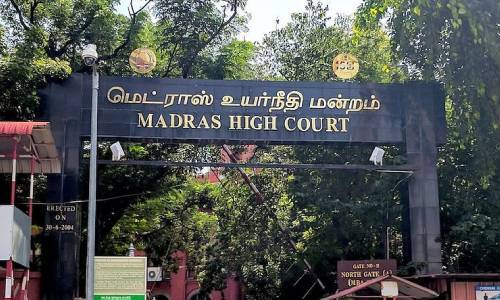
In a recent judgment, the Madras High Court reiterated that either husband or wife can seek divorce on the ground that the other spouse is not ready to consummate the marriage after solemnization. This amounts to an act of mental cruelty and qualifies the aggrieved party to claim a decree of divorce.
In this case, the couple was living separately for almost 15 years and the marriage had not been consummated yet. The Court drew attention to Section 10 of the Indian Divorce Act, 1869 which allows the marriage to be dissolved by a decree of divorce on a petition filed by either husband or wife on the ground that the other party has not co-operated to consummate the marriage after the solemnization of marriage.
The court categorising this act as an act of mental cruelty referred to a case titled Samar Ghosh vs Jaya Ghosh wherein it was held that:-
101. No uniform standard can ever be laid down for guidance, yet we deem it appropriate to enumerate some instances of human behaviour which may be relevant in dealing with cases of 'mental cruelty. The instances indicated in the succeeding paragraphs are only illustrative and not exhaustive:
…….
(xii) Unilateral decision of refusal to have intercourse for a considerable period without there being any physical incapacity or valid reason may amount to mental cruelty
The Court also relied on Vidhya Vishwanathan v/s Kartik Balakrishnan wherein it was held that:-
12. Undoubtedly, not allowing a spouse for a long time, to have sexual intercourse by his or her partner, without sufficient reason, itself amounts mental cruelty to such a spouse.
It has already been observed in a catena of cases that mental cruelty even more harm and injury than a physical assault. It causes the scars to remain inside a human body forever. ‘Mental cruelty has not been defined under any law, but the Supreme Court extensively explained the concept of mental cruelty in Samar Ghosh vs Jaya Ghosh wherein it was observed by the Court that:-
“The Shorter Oxford Dictionary defines 'cruelty' as 'the quality of being cruel; disposition of inflicting suffering; delight in or indifference to another's pain; mercilessness; hard-heartedness'. The term "mental cruelty" has been defined in the Black's Law Dictionary [8th Edition, 2004] as under: "Mental Cruelty - As a ground for divorce, one spouse's course of conduct (not involving actual violence) that creates such anguish that it endangers the life, physical health, or mental health of the other spouse.”
The Court also quoted Halsbury’s laws of England where the concept of cruelty has been explained, it says-
"The general rule in all cases of cruelty is that the entire matrimonial relationship must be considered, and that rule is of special value when the cruelty consists not of violent acts but of injurious reproaches, complaints, accusations or taunts……………………..
The court should bear in mind the physical and mental condition of the parties as well as their social status, and should consider the impact of the personality and conduct of one spouse on the mind of the other, weighing all incidents and quarrels between the spouses from that point of view; further, the conduct alleged must be examined in the light of the complainant's capacity for endurance and the extent to which that capacity is known to the other spouse. Malevolent intention is not essential to cruelty but it is an important element where it exits."
Therefore, mental cruelty is a course of unprovoked conduct which causes humiliation, embarrassment, and anguish so as to render

